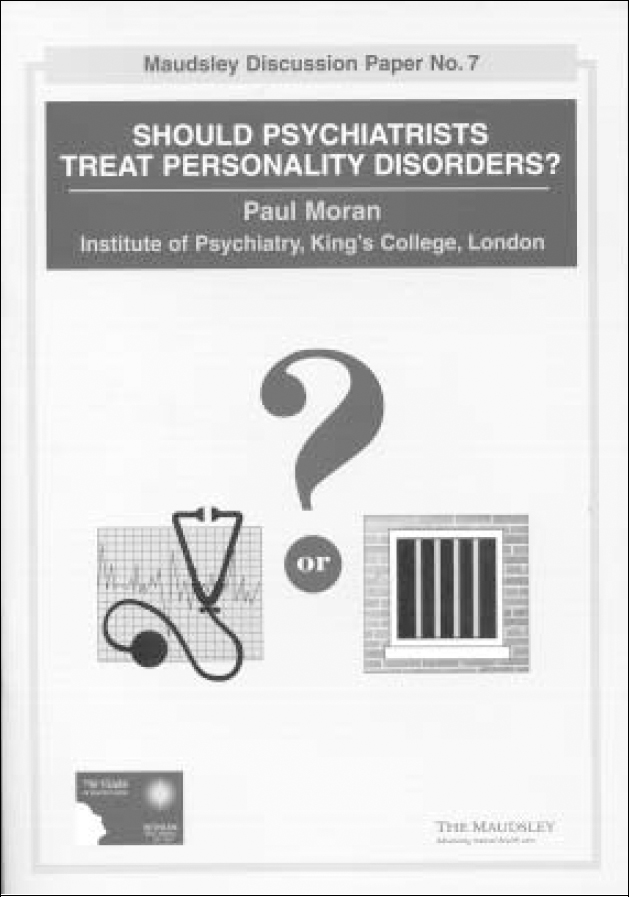Imagine a book entitled Should Surgeons Treat Cancer? Surely our surgical colleagues would find such a title risible and would, at the very least, demand to know the type of cancer, how far it had spread, which organs it had affected, etc. before discussing the matter further. The fact that psychiatrists are unable to conduct a similar debate on the treatment of personality disorder except at such an elementary level as highlighted in this title does not show our sub-speciality in a favourable light. And here lies a conundrum; personality, by definition, ought to be evident, as it is both pervasive and inflexible (unlike mental illness) and hence ought to commend itself as an object of proper study. Further, psychiatrists ought to be concerned with and interested in the personality of their patients, and be curious about the mask (and what might lie underneath) that we all require to survive. Yet this has not happened and one needs to ask why.?

In this sober discussion paper Paul Moran concentrates our minds on the perennial issue of what, if anything, psychiatrists have to offer those with a personality disorder. He follows the genre set out in similar publications, by providing background, then presenting the case for and against the intervention and finally summing up. The subtext of much of the discussion concerns the issue of dangerousness and responsibility — the patient's own and our duty of care to both the patient and/or the public. Tellingly, he begins his discussion with a quote from Herbert Cleckley and throughout the monograph there are occasional elisions between the broad group that personality disorders encompass and the very small subdivision occupied by psychopathic personality. I would be more radical here and treat the issue of offending and mental disorder (and that includes mental illness) as independent, so that their cooccurrence is most often coincidental and only sometimes causal.
In the manner of a judge summing up for the jury, Moran is even-handed in his approach, although he does not refrain from taking a swipe at our lamentable attempts at training and education, a point that the College is now addressing. It is simply not good enough for psychiatrists to make a diagnosis of personality disorder by exclusion; as Moran states, there are operational criteria for personality disorder and it is only when these are satisfied that the diagnosis should be made. But the essential issue is surely this: even if psychiatrists never wished to concern themselves with personality disorder per se, the fact that those with mental illness present their disorders within the context of a personality — disordered or not — ought to be of interest to them.
This is a very well-balanced review of a difficult issue and should be mandatory reading not only for all trainees but perhaps also for those of us further on in the process of maturation.





eLetters
No eLetters have been published for this article.